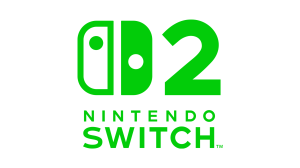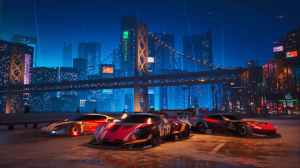
Avengers: Endgame managed to accomplish the seemingly impossible when it delivered a satisfying conclusion to a 22-movie franchise. If Disney Studios decided to end the entire thing with Spider-Man: Far From Home acting as an epilogue, the Marvel Cinematic Universe would feel like a completed affair. However, we all know that isn’t the case. As the first decade of stories end, there’s a promise of many new adventures, heroes, and villains to come after an almost year-long break. That raises many questions about what the future will look like, but none more important that this: what villain could possibly be big enough to fill Thanos’ shoes in uniting the entire MCU again?
Videos by ComicBook.com
There’s just one obvious answer: Galactus.
With the Fantastic Four properties returned to Marvel Studios following the acquisition of Fox, one potential upside is that Marvel has access to some of its all-time greatest antagonists. When looking at the cosmic scale, the sort of villain who can unite every hero for another epic battle, none looms larger (literally or figuratively) than Galactus. It’s not just that Galactus is one of the best villains to unite the MCU going forward, it’s that Galactus is the absolute best villain for the job. Here’s why.

Focus on the Earth
It is impossible to go bigger than the one-two punch that was Avengers: Infinity War and Avengers: Endgame. Thanos wiped out half of all life in the universe and made it personal by including the Internet’s innocent children Spider-Man and Groot. While it might technically be possible to increase the stakes by threatening 100% of all life or the multiverse, there comes a point where size loses all meaning. You can explain how one black hole is technically larger than another, but that really doesn’t make it seem any more terrifying. That leads to the question of how can the next big threat to the entire MCU measure up to Thanos?
The key isn’t to go bigger, but match the power of the threat with stakes that are equally compelling. While Captain Marvel acknowledged there were hundreds of planets facing similar crises to Earth in Avengers: Endgame, it was the characters that audiences already knew and loved that made the battle feel so grand. Galactus doesn’t have to imperil all of existence or even half of all life to feel every bit as terrifying as Thanos. Instead, he simply has to threaten all of Earth and the many incredible heroes and families who make the Marvel Cinematic Universe so beloved. By focusing on how one planet has done so much for all of reality, that planet is all that needs to be threatened for a massive event. So why go any bigger than the Devourer of Worlds?

Alter the Stakes
Galactus doesn’t lower the stakes by focusing his power on the singular destruction of Earth; he alters them by his very nature. Thanos was a mad man pursuing Thomas Malthus’ model of economics that has been outdated since the Industrial Revolution. No matter how much time a subreddit devotes to claiming Thanos was right, it was always clear that he was a genocidal maniac rather than a bloodied savior. Stopping Thanos provided every civilization a chance to seek its own solutions to problems of overpopulation or resource depletion—ones to which real world scientists are already seeking very plausible solutions. Galactus isn’t a force to simply be stopped, however, he is a necessary evil that cannot be dispatched even with a blow to the head.
One of the most important elements of Galactus’ mythology in the comics is that he is a force of the universe, given a mortal shape by the ancient scientist Galan. Galactus does not consume planets purely for his own pleasure or out of some misguided sense of justice. He eats because his hunger represents a cosmic balance that would threaten all life if it were not maintained. This is why Galactus has never been truly stopped by the heroes of Marvel Comics and what led to the classic story “The Trial of Reed Richards” in which Reed had to justify saving Galactus and allowing his path of destruction to continue. This would offer a new dilemma for the heroes of Earth, as they would threaten all life by destroying Galactus and risk other planets by simply deterring him. It’s a Gordian Knot of a problem, and one that would demand the best from all of Marvel’s heroes to be solved. The power of Captain Marvel, the scientific genius of Wakanda, the magic of Doctor Strange, and the courage of Spider-Man would all be required to find a heroic ending.

An All-Time Marvel Classic
After the events of Avengers: Endgame, the bench of heroes in the MCU needs some new recruits. Galactus is the perfect antagonist to not only challenge those who already exist, but to unite them with new heroes. He was the original “big bad” of Marvel Comics, both as a key antagonist of the Fantastic Four and a force who has fought Earth’s mightiest heroes multiple times. The connection to Marvel’s very first superhero team, one that could be reunited with the rest of the MCU is more than enough reason to start hinting at Galactus’ coming. His arrival could also help to introduce a whole bevy of other cosmic characters, specifically the Silver Surfer. He forms a bridge between the old and the new following the acquisition of Fox and its many Marvel properties.
Its Galactus’ place in Marvel Comics history that makes him most appealing, though. The current franchise has found a lot of value in pulling directly from the original stories created by legends like Jack Kirby, Stan Lee, and Steve Ditko. Galactus was the biggest nightmare that the creators of Marvel Comics could imagine and his appearance on film would both honor the origins of these characters and build on some of the best Marvel stories ever told. He was the first villain to ever feel like a true event in superhero comics and still possesses the power, design, and motives to replicate that feeling on film. That’s why Galactus is the Marvel villain best suited to following in Thanos’ footsteps.








